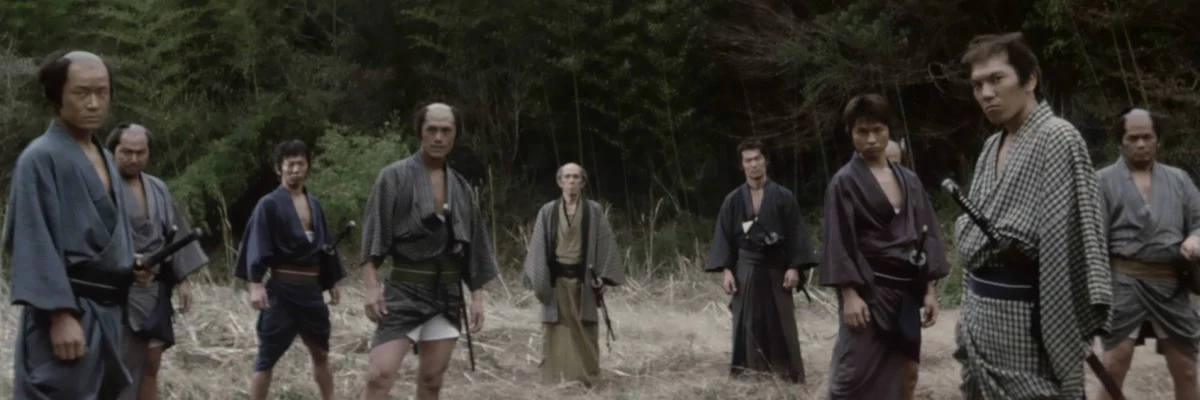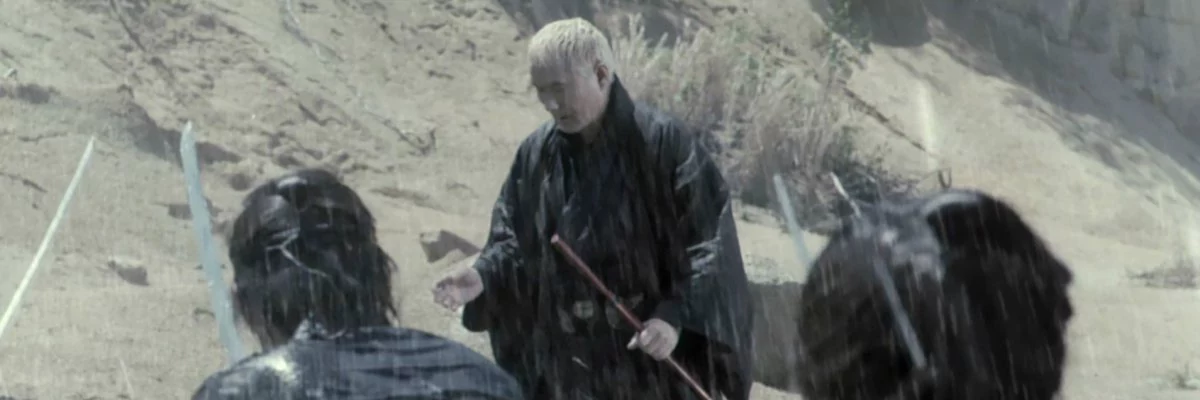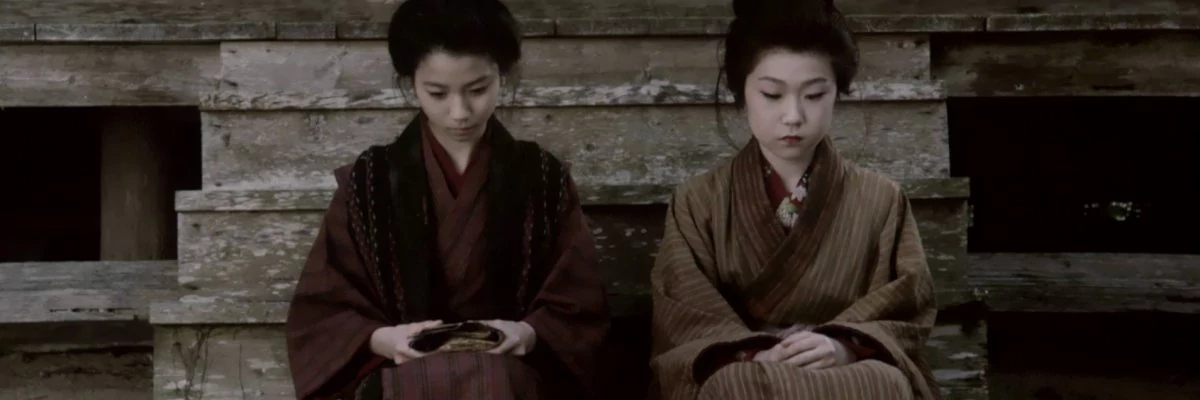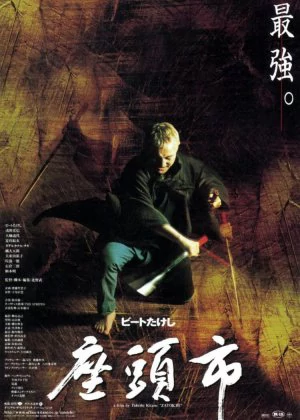Zatoichi
When I first watched Takeshi Kitano's Zatoichi, I had no clue who this blind masseur was. I didn't understand the franchise he represented, let alone the big shoes Kitano had to fill. I just went to see the latest Kitano film in theatres, back when that was still a realistic option. Somewhat to my own surprise, I ended up liking the film a lot, though I have to say that was a long time ago, and my take on good cinema has changed a fair bit since that time. And so it was time to give this Kitano another go, hoping that it had kept its initial appeal.

The worst thing is that I still haven't seen any of the classic Zatoichi films since I watched Kitano's Zatoichi 16 years ago. It's no doubt one of the biggest film series in Japan (featuring no less than 27 feature films), standing proudly next to giants like Godzilla and Tora-san, but somehow I haven't found the courage and/or stamina to get started on it. As much as I like Kitano's addition to the franchise, I feel less confident about the older entries in the series, not in the least because I feel that it are Kitano's signature elements that make this film so agreeable.
Zatoichi isn't a full-blown Kitano film mind, for that there are too many traditional genre elements that remained intact. But it's also not just a simple genre affair either. Kitano did his best to keep the appeal of the original franchise, but added quite a few things of his own. There are some very direct comical bits, some atypical musical numbers and of course, the bleached upgrade of the titular masseur. This doesn't only make this version it a bit more modern, but also more clearly the work of an auteur, rather than a gun for hire working within a neatly defined franchise.
The story is a pretty typical affair for a Japanese period drama (or Jidaigeki). Zatoichi stumbles into a little town overrun by a malicious gang. While he doesn't get involved too openly and too directly, he befriends some welcoming villagers and helps them make a stand against their violent oppressors, pulling some classic blind man tricks to keep his guise intact. Of course the local gang isn't too happy about Zatoichi's meddling, and they want to get rid of him as quickly as possible. Rest assured that blades do not remain sheathed from there on out. It's nothing too original, but it's more than sufficient.

With Dolls out of his system, Kitano went back to a more muted color palette. The brownish, somewhat dulled palette really fits the setting well, and combined with some fine camera work and stark, noteworthy editing, it makes for an attractive looking film. It's a step up from most films in the genre, but it's not quite up there with Kitano's best. It's definitely not the most visually striking film he has ever directed, but there are enough nifty visual details and moments of cinematographic joy to garner some praise in this department.
The soundtrack on the other hand is something else. Surprisingly rhythmic, superbly atmospheric and overtly present, with an atypical electronic finish that makes it just that little bit more unique. There are a few remarkable scenes where the music completely dictates and dominates the pacing and tone of the film, making scenes that would otherwise have been quite inconspicuous, stand out and transform into memorable bits of cinema. It's an exemplary score, some of the best proof out there that a soundtrack can have a much bigger impact when it actively challenges expectations.
Zatoichi is played by Kitano himself. A rather daring choice, as Kitano's mannerisms are quite characteristic and could have easily overshadowed Zatoichi's character. But the balance is positive and Kitano's Zatoichi has plenty of personality, without necessarily channelling vintage Kitano. He's not a slavish copy of the old Zatoichi (the bleached hair makes sure of that), but he's not just Kitano in samurai garments either. The rest of the cast is pretty grand too, with notable performances by Tadanobu Asano, Ittoku Kishibe and a welcome cameo of Yoshiyuki Morishita.

Kitano's Zatoichi is the perfect introductory film for someone like me. A film fan who want to get acquainted with the Zatoichi franchise, but isn't the biggest fans of classic cinema. It's a film that feels modern enough, without completely overhauling all the elements that made this series into such a success. It's difficult to say how long-time Zatoichi fans will experience this film, but if I could venture a guess, I'd say they'll find it different enough from the original film series as to not cause too many direct comparisons. The ending in particular is something you won't find in any other Zatoichi film, or Jidaigeki film for that matter.
Maybe 2020 will be the year that I start my quest to watch the original Zatoichi films, though if I'm totally honest, chances are quite slim. Watching Kitano's version again though, it has at least rekindled my interest in the classic episodes. Kitano's version is playful and quirky, but also pretty badass and harsh when need be. The film looks great, sports a sublime soundtrack and Kitano himself shines as the titular character. An easy recommend, especially for people who don't like to venture too far outside their comfort zone, but are willing to take a little gamble.
